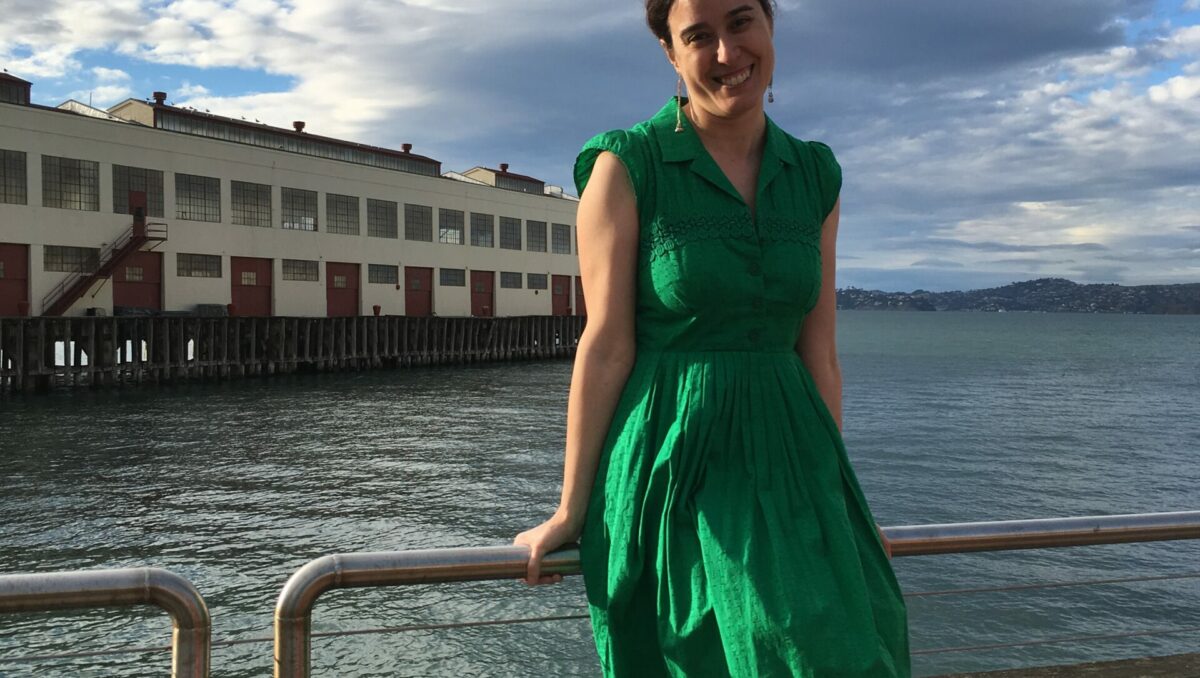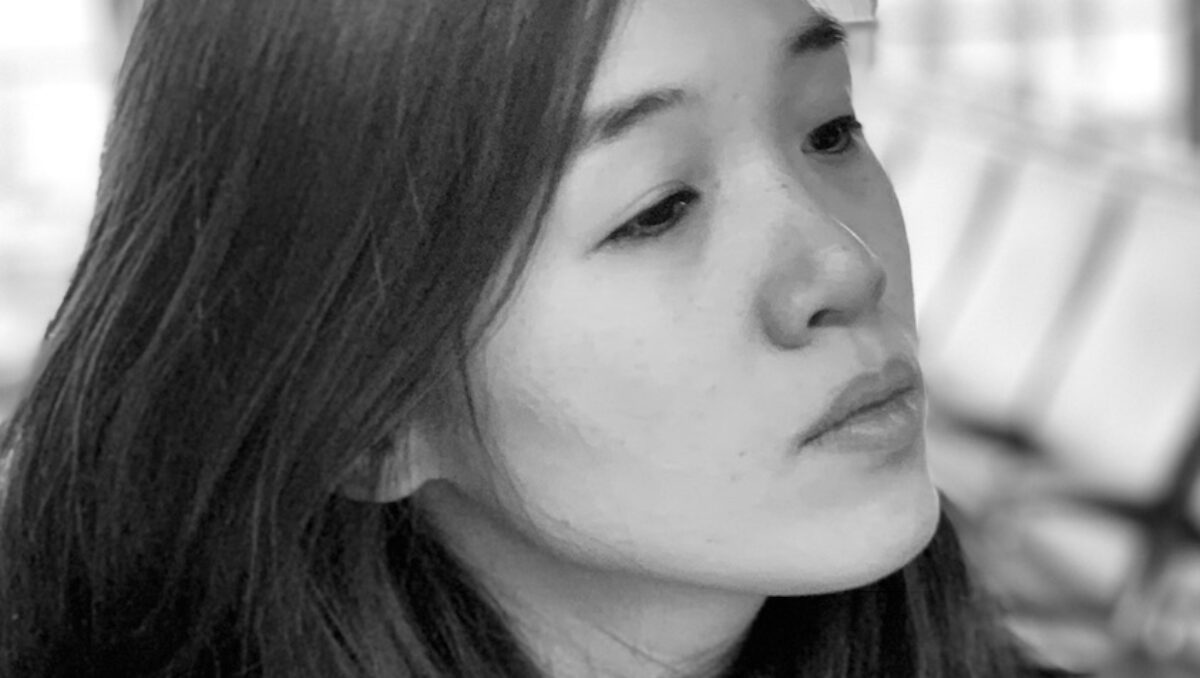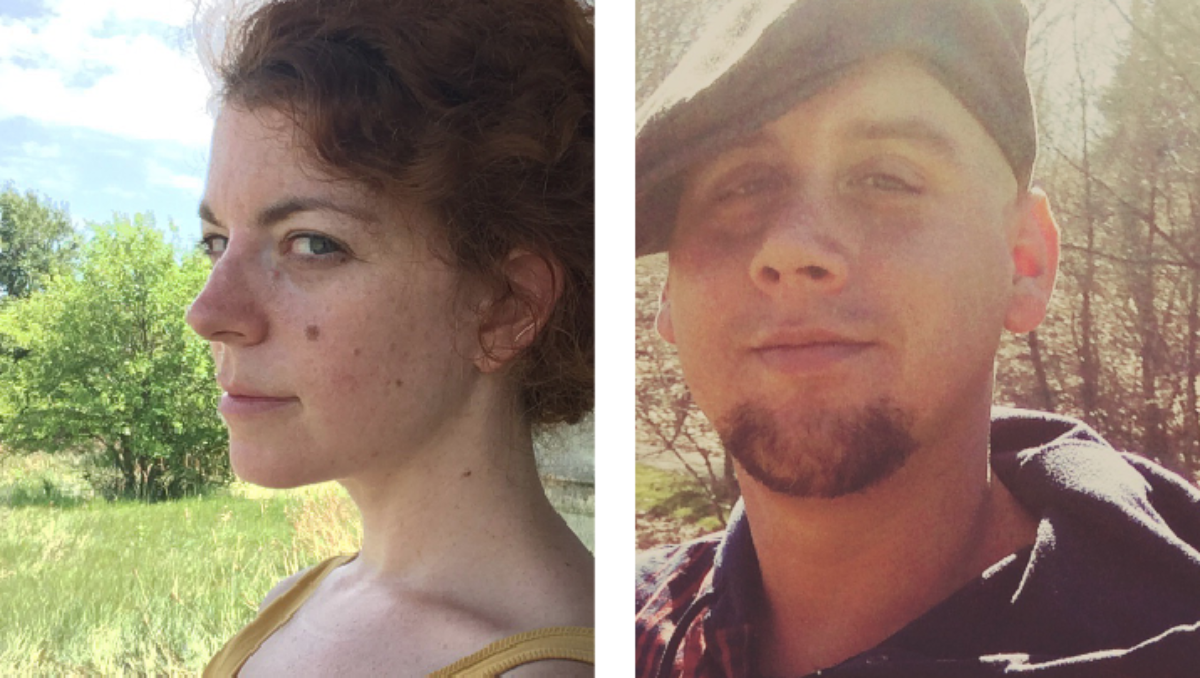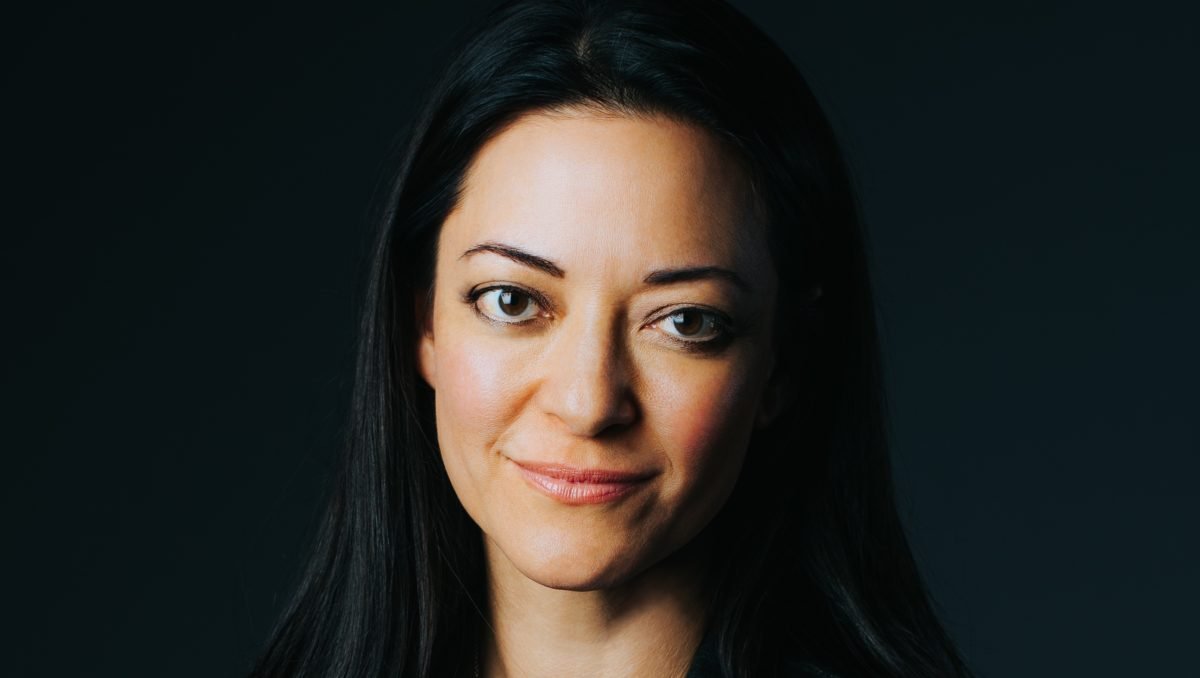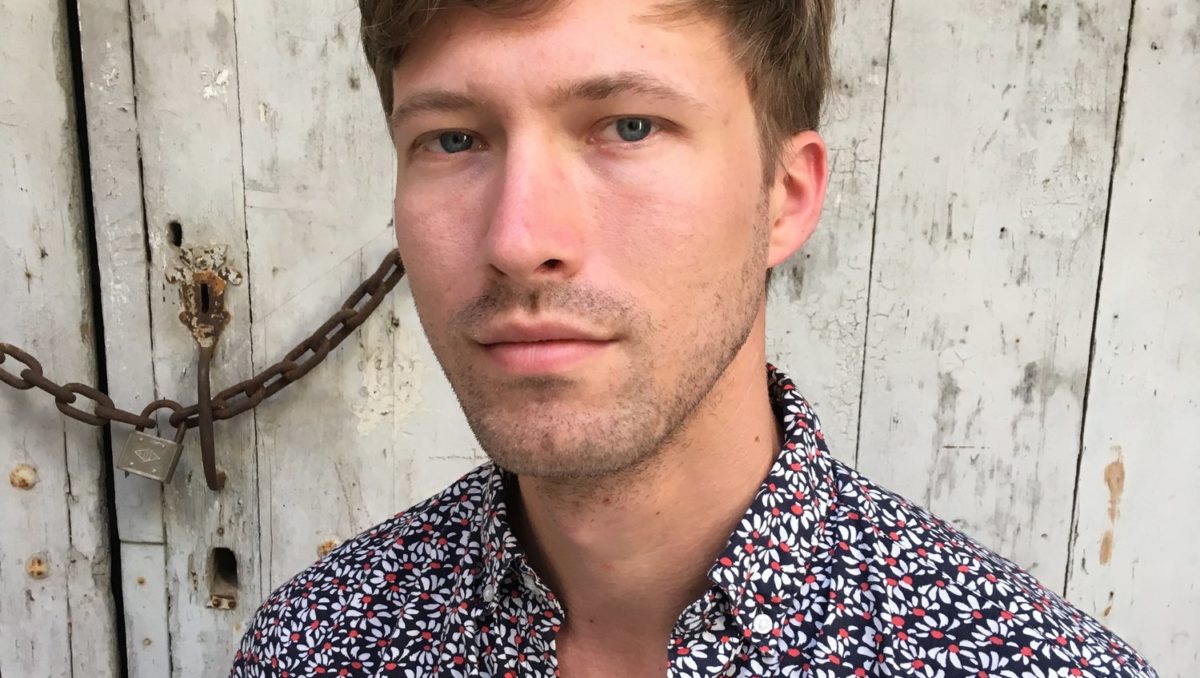THREE POEMS by Iman Mersal
A grave I’m about to dig
As I return home with a dead bird in my hand, a little grave I’m about to dig waits for us in the backyard.
No blood on the washed feathers, two outspread wings, and a dewdrop (some concentrate of spirit?) on its beak, as if it had flown for many days while actually dead.
Its fall was fated in the Lord’s eyes, heavy and diagonal in front of mine.
I’m the one who left my country back there to go for a walk in this forest, holding a dead bird whose absence the flock never noticed,
returning home for a funeral that might have been solemn and grand were it not for the sneakers on my feet.
A gift from Mommy on your seventh birthday
These are the instructions:
- Spread a tablecloth on level ground.
- Make sure to wear the provided goggles.
- Grab the ax with your right hand.
- Strike the hollow brick very lightly.
- If you strike too hard, you might break the treasure hidden inside.
—I don’t know what the treasure is either, but here’s what’s written on the box: If you’re lucky, a gift from the pharaohs lies inside!
—No, sweetie, no one in Egypt sent this to you, it was made in China.
—Let’s think. Could it be a mummy, with no internal organs? The Great Pyramid’s tomb before the archaeologists discovered it? The head of Cleopatra after she fell in love?
—Those are just guesses . . .
—You won’t know until you break it to pieces.
—Let’s go out to the backyard first. If we do it here, everything will be covered in dust.
A night at the theater
The man on the bus
who cursed our driver for missing his stop
now sings under a lofty balcony,
looking skinny in his fake hair.
His eyes are smaller than I remember.
How did he fall in love with Juliet in less than an hour
while his own wife
(she let everyone know she was his wife)
fights off yawns in the front row
and waits for the play to end?
Juliet was born a very long time ago.
With some help from the stage lights
and her white dress, she looks sad,
and indeed we all know she’s about to die.
Why doesn’t the cameraman take a step
back from the body?
The way he’s doing it
everyone will see
how hard she’s trying not to breathe.
Now members of the two households
remove their stiff costumes,
put away their daggers, and hunt
for trousers and watches.
Some will dash to the bathroom
before going out to take their bows.
If I were Romeo
I’d keep the suicide scene short
so as not to hear
my wife’s snoring.
Translated from the Arabic by Robyn Creswell
- Published in Poetry
IN THE HALL OF THE MOUNTAIN KING by Majda Gama
My father came from a city of old rooftops sprawled across seven hills. Within these hills were tribal Gods carved into metamorphic rock. When he built us a home, that home was new & imported. Veined, marble tiles from Italy. Wood furniture from the hollows of North Carolina. He loved what was new, but filled our home with polished rocks from deep within the fossil record. They spoke their language to him. His head was always cocked as if listening. We often sat around the diamond tip on the needle of his record player listening to Peer Gynt. He pursued the perfection of sound. A heavy, blinking compact disc player hidden away from visitors in a dedicated room. He’d shut himself in to listen to Mozart on a silver disc, stood in the middle of the room to conduct St. Martin’s-in-the-Fields. A few months after he passed away, my mother fished into the pocket of a coat he wore when travelling to the West. She pulled out a packet of cut diamonds.
This poem shares a title with a musical piece by Edvard Grieg, from the classical album Peer Gynt.
TWO POEMS by Helena Mesa
Bozza Imperfetta of Sight
The tourists arrive. Dogs roam, smaller than the strays back home, then sleep, teats exposed, on warm stone roads. The tourists snap pictures; they snap pictures of each other snapping pictures; as expected, they snap pictures of cars—a 1950s Ferrari, a red taxi with Rubenesque curves. Strangers wave, pose: A man palms a blue cake, another grips a chicken by its feet, its wings twitching. At a cathedral, the tourists enter without genuflecting; they enter reflections, each a prayer gracing the tile floors, the faces of the faithful. The tourists study their maps.
The tourists crowd a van, drive to the countryside. There they break bread with the people—fried plantains, ropa vieja, wine. Half-hunched, a man beats time with his cane—he calls the host by name, he sings: I’ve seen your wife, sings: she’s climbed into my bed. The tourists look from man to man.
Back in the city, the tourists stroll the promenade. An arched window opens nowhere. A wall salutes the street, its scaffolding woven with weeds and vines. Farther down, boys play soccer under a stairway floating midair. Each step climbs and climbs, never arriving.
Prayer for No Country
Between my want and your want
for me, I envision our universe:
a kerchief, each tip gently pulled to
its fuchsia center,
the cloth creased. And ironed.
You will turn over the new square,
and repeat. My turn, your turn—
and repeat, until we can no longer
fold the cotton.
Then, you and I
will occupy not a country
but a hard origami knot, each part
of us pressed against
the other.
A STORY ENDING WITH AN OFFERING by Willie Lin
No one wanted to do it, no one wanted
to look at a thing so large, helpless
to die or live, not knowing what to ask for itself.
To imagine an after. Even less to change it.
Because they all imagined themselves
gentle—no hunter, no wolf among them—they
wanted it to return to where the crease of woods
began. The woman, she walked from her car
to kneel next to it, stroked its back as if
it were a domesticated thing, its wildness
humbled, comforted by her touch. And one man,
he thought he would do it. He had a knife.
He would go behind it, hold it, almost
an embrace. Then it lifted its head, its neck,
to look around, and tried, as if in one motion,
to begin to stand. Because what came
came to the middle of them, because what came
came to lay claim, because they feared
weakness, held themselves at a remove,
shrank from weakness as if it would leave
a mark on them, they did not know how
they were to begin. At the beginning, they thought
because it was asked of them, they would give it.
The light was white and hot, and the woman
thought there is no brightness without burning.
And the other man, older, thought of the scene
in past tense, fallow. He will use it like the living
word pointed skyward, the warm neck
wavering between majesty and ruin. The road
was rough, ruined, like a wall painted over
too many times. And his work, it has not meant the same
at the end as at the beginning, so what remained
must be to uncover, to release—
They wished it could—why not—have been
a piano, an old shirt. But it had to be something
inhuman and living. Ugly premonition.
They felt themselves held like the thing
they held to—how long had it been, will it be
before, again—against its will, unable
to submit. They hoped, like anything released,
it would go a long way. It would go beyond
their belief, their seeing. It would go on and on,
no possibility of return. As if that were not
the fate of all things. Of course the world will shatter
for them. Not far from myth, where it watched
them finish it, tried to follow their movements. In time,
the whole of night will fall, some heaviness
will precipitate to the bottom of them
like in a silly science experiment in school.
What was insoluble, what is contained
in the memory, replaced particle by particle,
while the night became soft as flesh, plain
as a glass of water.
CONVERSATION WITH Adrian Matejka and Conor Bracken
Adrian, thanks for agreeing to talk about your latest book, Somebody Else Sold the World, with me. I’m really excited to talk about it, and the ways that it is contiguous with your larger poetic project, and how it also subverts or cuts new facets into it.
One of the things that has always exhilarated me about your poems is their music. The title is from the David Bowie song, “The Man Who Sold the World,” and many of the poems in the book itself refer to/are in direct conversation with a wide variety of songs and artists (Future, Radiohead, Thundercat, Funkadelic, Tycho). (Clearly your taste in music is as catholic (eclectic wouldn’t do justice here) as it is good). But the poems are as deft and musically double-jointed as ever. Assonance and alliteration, stutter-step rhythms and sudden spans into smoothness–sometimes it feels like what Dilla might have done with a typewriter instead of turntables. The relationship of music and poetry has changed a lot over time–no more lyres, for instance. How do you think of and work with the relationship between music and poetry in your own work?
Adrian Matejka: Conor, man, thank you for taking the time to read the book and for your kind words about the poems. It’s wild because almost every poet I know is a failed musician in one way or another. Either they weren’t especially gifted musicians (like me) or they decided to employ their musical talents in different ways, like Mari Evans and Terrance Hayes. Thomas Hardy supposedly got down on the accordion, too, but that could also be a myth.
The thing is poets are musicians, we just use assonance instead of adagios. One of the great things about our current poetry moment is the incredible musicality of the work. I’m thinking about [your full length] The Enemy of My Enemy is Me (congratulations!!!) and the poems in the book (like “Kintsugi”) that just swing. And Kendra DeColo’s I Am Not Trying to Hide My Hungers From the World and World of Wonders by Aimee Nezhukumatathil. Hanif Abdurraqib’s sonics in both his lines and his sentences and Ross Gay’s astonishing Be Holding. So much bright music around us. Then there are books with quieter compositions that still astound, like Erin Belieu’s Come Hither Honeycomb, Alex Dimitrov’s Love and Other Poems, and Shara McCallum’s No Ruined Stone. I guess I just started a 2021 reading list instead of answering your question because there are so many new books that hum right now.
Maybe one of the reasons I lean into music so directly is that music has been a constant in my life. I played middle-school French horn terribly, was on the mic with a band in college, and DJed on the radio for a while. But when I was a kid, we lived next to a blind woman named Pearl who would listen to music at all hours—jazz, soul, and funk especially. I would wake up in our brokedown townhouse in the middle of most nights because every creak in that space sounded like someone breaking in. I got so much comfort from hearing Pearl’s music because it reminded me that I wasn’t alone.
That’s when I learned about the possible comforts in music. I’m not sure if there’s a direct connection, but I know for certain COVID made me hear lyrics, hear bridges and solos with a different kind of attenuation. I mean, I’ve always loved Portishead’s Dummy or Dexter Gordon’s One Flight Up but the sounds seem differently focused after isolation. Have you had that experience, too? Where something you understood one way has changed wildly after COVID?
CB: Oh absolutely–COVID definitely shifted some things in my life a couple degrees so they were like that woman’s arms in Prufrock–in the lamplight downed with light brown hair, i.e. different, a little more intimate and real. The largest was probably isolation. Before the pandemic hit, my wife and I moved to a small town in central Ohio that was right between our jobs (each about an hour away). We lived for a couple years without family, friends, any sort of social network, and it was tough. During the pandemic, it was still tough, but we’d been accustomed to not seeing anyone, so our social isolation looked different: not so much a condition, but a preparation. This didn’t change isolation to some magical wonderthing, though–it’s hard to rely on one or two people as your only relief from yourself.
Another thing the pandemic shifted for me, both slightly and enormously, was parenting (my daughter was five months old when lockdown started). I got to do a lot more of it than I would have otherwise! This was great, and also taxing, as you well know. Parenthood, along with the pandemic, is also one of the narrative/thematic threads in Somebody Else Sold the World. The Gymnopédies suite is sweet, pithy, and beautiful, shot through with a nostalgia that seems really right for an homage to [French composer] Erik Satie, and those poems, along with “Snakes Because We Say So,” help the speaker reflect on change–in the world, post-pandemic, as well as in himself. “Snakes,” in particular, is such an interesting and delicious poem——it has so much! The anaphora, the question about blame and its necessity, the interrogation of masculinity, the tone flicking its tail this way and that–but I’m especially curious about how you approach poems with your kid in them. I remember hearing Victoria Chang say something akin to (but kinder than) “my kids? I’m with them every day. Why do I want them in my poems?” Do you end up consciously writing about parent/fatherhood, or is this something that just kind of happens?
AM: What Victoria said cracks me up for so many reasons, but especially the exclusiveness of, or maybe the pervasiveness of being a poet. It’s so complicated and consuming. There are poems I’ve written that are only possible because of my daughter and then there are poems that never made it onto the page because I’m a father. Something is begetting something, but I’m not sure of the direction.
A while back I was working on a book of essays/poems about being a Black father during the Obama presidency and after. I gave up on the project for ethical reasons (including ones connected to the ownership of story) and also because there were some generational contextualities that I couldn’t unpack. I was raised in a generation still limiting itself with the one-drop paradigms of race. My daughter and her friends don’t go for those same constructions, so writing about Blackness and fatherhood in that context ended up being more historic than familial.
After I left the house, my relationship with my daughter fractured for all of the familiar reasons and I don’t feel like I understand [those threads] well enough to talk about it. But I think that breaking happens across our lives, all of the time. It’s impossible to change locations and be the same person. We move or a friend, family member or paramour moves, and our relationships change because of new topography. We have no choice but to change with the new atmospherics on all sides. Maybe you’re experiencing some of this in Ohio after so much time in Texas?
That’s a long way to go to say that the poems you mentioned are among the seven poems I wrote pre-pandemic while I was working on that earlier project. Everything else in the book was written between March and October 2020. The experience of isolation from the world and from my daughter made me reflect on what connections we still have. The Gymnopédies poems were part of that reckoning, if that makes sense. Thinking about the things we shared when she was six or seven, rather than the things we can’t communicate about now that she’s a teenager. There’s a different veneer to everything.
I’ve been thinking about how isolation has eroded our delicate nettings of socialization. I enjoy a good in-person poetry reading as much as the next poet, but it took me years to figure out how to separate my creative and public selves. I had to learn to change from my usual poetry lens to one that is more social so I wouldn’t sound like a T.S. Eliot parody at the party, affected British accent and all. I mean, there has to be separation, right? Nobody actually wants to sound like a poem during a conversation.
It feels like maybe a year of Zoom readings erased my etiquette on the page and off. I’m not sure I can still do small talk. Time in poems works differently now. Urgency in the world seems even more vital now.
I had a psychology professor in college who might have been British and was dosed with LSD without knowing. He became obsessed with time afterward and either lectured to his watch or to the clock on the wall, so he always knew what minute it was. It’s not that dramatic as that, but all of the past year’s mortality and stagnation has me thinking about what progression is when the world stops. I’m wondering about the different versions of mortality in The Enemy of My Enemy is Me, too, so I hope you’ll talk about that some.
CB: Oh, that’s so interesting about the Gymnopédies poems being kind of grafted onto/woven among poems that were written just last year. I remember seeing some of them years ago in POETRY (around the time The Big Smoke was out) and thinking ‘whoa these are so different–not coming over a sound system in a basement or from a podium but from someone leaning down to say something private and intimate.’ That they fit so seamlessly with the rest of the book, and its themes of time, distance, intimacy, and regret/guilt, speaks a lot to your revision and curatorial process.
That anecdote about the furtively-dosed prof–holy shit! LSD is, uh, quite a thing to weather when you consent to it; I can’t imagine what it’d be like to be hoodwinked into it. It seems like an apt metaphor/allegory for the pandemic, in a way: a mind-altering experience we had no idea we were participating in, could not escape, and are now greatly changed by. I love that you bring up time as one of the things that it’s changed for us, too, because I think another of Somebody Else Sold the World’s big fascinations for me is how it interrogates the themes I mentioned above in the context of different temporal cycles: the pandemic, the cycle of the year, the cycle of relationships (romantic and familial), and a human life cycle. How you toggle among these four, their different intimacies and terrors and exhilarations, and how they share so many of these between them, is really deft. It’s like watching the innards of a watch click and spin, all of these interlocking and meshing, driving the thing forward in a dazzling mess of glints and thoughtful friction.
I’m always so interested, too, in the way that time can work in a poem, and how it can both defy and encompass the way it does so in our world. I heard Noah Warren read a poem that leapt over like twenty years when he read the line “the years passed badly” — suddenly we’re in a future we didn’t know the poem was even capable of. I love how poems can do that. And how they can rewind time, too, like Ansel Elkins’s poem reversing a hate crime and restoring humanity to the victim of a lynching.
I want to ask you about time in your poems, too, but also want to answer your question about mortality. I mean, it’s more present for so many more than before, right? Between the stormier sky, the rising oceans, the hotter winds, and the cops, filmed or otherwise, brutalizing people of color, not to mention the virus and equitable medical care receding via cost and abortion restrictions, if it’s not already gone due to differential treatment of Black folks by science and practitioners–the urgency to address these has been there, but it definitely feels of a different order now.
As for my book, there’s a lot of violence in it. (Any book that takes the US as part of its subject will, or ought to, right?) There’s violence on the international level, the ecological level, the interpersonal, and the intrapersonal. The quote-unquote regular kinds of mortality, about the actual death of a person, come through with US neoimperial campaigns (the speaker is a paramour of Henry Kissinger, who helped engineer all sorts of coups and illegal bombing campaigns in the name of democracy) and mass shootings/gun fetishism; the other kind of mortality that the poems look at are what selves we are asked to sacrifice by society, specifically the kinds of selves it expects men (especially white men) to get rid of, and how restrictive, violent, and regressive this shedding of more thoughtful or conciliatory selves that do not want to participate in or overlook toxic instantiations of male personhood is.
I’m interested in complicity, how we can see cruelty, know that it’s perpetrated on our behalf, and allow it to go on. What kinds of deaths inside us does that engineer? What do we need to strangle inside ourselves so that we’ll stop a strangulation we are seeing?
This seems to me something you’re looking at, too, in Somebody Else Sold the World, albeit from a different vantage, different because of how race works in our poems and poetics, not to mention our lives, especially if/when we take race as a proxy for how the world does (or does not) impose itself on us. You also seem to be asking how did we get to this particular place of injustice, and what is that doing to us? Tiana Clark recently talked about each book having an unanswerable question as its engine. Does that hold true for you, or do you center the process differently when you are beginning a book?
I love to imagine that poetry is an antidote to all of this, but it’s not. It’s a signifier or an amplifier—more like a megaphone at a protest than a gun.
AM: Complicity is so knotty and multifaceted because it can be, as we’ve seen forever in the United States, something that people deny defensively, ignore selfishly, or sidestep quietly. I’m thinking about this wide lensed, in our public institutions, too, where cruelty is baked in and called “bureaucracy.” But it’s also been in the backdrop of my personal interactions since I was a kid. When I was younger, I rode shotgun with friends who enacted some of the toxicity so many of us (including some of those now-repentant friends) are trying to break apart now. That’s a familiar history for many men. So until each of us figures out how to be less selfish and avaricious, how to move through the world making space instead of taking it, we’ll continue to have these problems of disparity and disempowerment that’s been protected by our patriarchal systems.
Now I’m thinking about one of the poems that didn’t make it into SESTW that was inspired by a high school boy I knew when I was in middle school. He used to hip me up to the goings on in the neighborhood and in life generally, the way older kids sometimes would. Most of what he said was harmless and was probably repeating what he was told when he was younger. But his advice about women was essentially “make no mean yes.” He was passing on these ideas of sexual assault that were common then and now. I was 13 at the time and didn’t understand what he was saying until much later. I don’t think I was alone in being offered that kind of destructive advice from other men.
I love to imagine that poetry is an antidote to all of this, but it’s not. It’s a signifier or an amplifier—more like a megaphone at a protest than a gun. The poem I wrote about that guy wasn’t any good in part because of Tiana’s beautiful idea of unanswerable questions. There are no questions about his abhorrent advice beyond “Who taught him this?” so the momentum disappeared and what I had left was a didactic anecdote in line breaks.
But some of the major questions I kept asking myself in this book are about desire and want and also about consent and agency. I think the answers to these questions are constantly evolving, but I hope I started to answer them in SESTW.
At the same time, I don’t know if this book does the tough work of trying to dismantle the kind of cruelty we’re talking about at the top. I am fully aware of my position as a middle aged, heterosexual guy and American poetry from the 20th century on through is clogged with covetous, slobbery poems by men. I didn’t want to add to that self-serving canon. If anything, I hope that I was able to think about desire as part of the human condition, as familiar and as vital as breathing. Now I’m thinking about other poetry collections that deconstruct masculinity. Edgar Kuntz’s Tap Out does. Keith Kopka’s Count Four and Marcus Wicker’s Silencer do as well. Who else?
How do you write a love poem in the 21st century? How do you write a poem about sexuality and desire while also respecting the person who ignited it?
CB: Making space instead of taking it–so well said. It makes me think of that Mark Strand poem, “Keeping Things Whole,” in which the speaker says “In a field / I am the absence / of field.” That poem–like so many of Strand’s–works because it has a kind of moral revelation in the midst of an alternate dimension. You’re trying, in SESTW and just generally overall too, to do this moral work in the world we’re a part of. Not trying to diss Strand, but note an important qualitative difference, because one of the things that I think can be so hard is doing this so that the poem doesn’t just become a didactic anecdote in line breaks. How can the necessary distance between poet, speaker, and subject come into play so that the materials of the poem can be moved around until they click (or rattle right)? For me, I had to take the Strand route–go a little surreal with it, lean more into persona so that I wasn’t frozen by my closeness to it all.
But books like Edgar Kunz’s and Marcus Wicker’s (I haven’t read Count Four yet but have to), and Nathan McClain’s Scale, some of Shane McCrae’s less persona-driven work, even Hanif Abdurraqib’s A Fortune for your Disaster and Kevin Prufer’s strange narratives and Matt Rasmussen’s Black Aperture–they all live in the real world, and look openly at the cruelty that masculinity expects of individuals and systems, and posit tenderness and vulnerability as a response (in varying degrees of out-loudness). I like this idea of assembling an ad hoc canon of re-envisioning masculinity poetics. I’m sure I’m going to come up with five more poets and books once I finish this answer, too.
Because you’re right–we’ve all got those friends whom we rode shotgun with, who inherited and in their own way modified or continued to develop these regressive primitive codes of dude-ness, which, in one of your poems titled “Love Notes”, you note is to fail but “keep trying in the customs of dudes.” This idea of persistence, wearing away, eroding any barrier–it’s its own kind of colonial impulse. That my need is more important than your resistance, that it will outlast it. It’s so valuable that these are questions you’re working with–what is consent, not just interpersonally, but also in poems. Who gets to tell whose story and how? It makes me think of Edouard Glissant’s contention that people (especially colonized peoples) are allowed their obscurity and that some things–some works, some feelings, some thoughts–aren’t and shouldn’t be available for translation. Just because you want something doesn’t mean you should have it. Just because the mountain is there doesn’t mean you get to climb it. I’m thinking of the Indian government protecting the area around Nanda Devi (second highest mountain in the nation) for safety but also religious reasons. It seems to me that we could all stand to learn to take no for an answer more, on every level.
But one of the other things in your work that I think is really important in your work is how it demonstrates alternative methodologies of writing, especially regarding your collaborations. You’re a preternatural collaborator, with artists, the historical record, your own past, the music of others. It’s great in so many ways, but a lot because it’s you showing us, your readers, things you think are great. It’s a kindness and like, a community service, to enrich so many people’s understandings of what different creative expressions are out there, and how they intersect with each other and poetry and life and so on. How do you approach collaborations? Or, how do you figure out with your collaborators how to work together?
AM: Thank you for putting collaboration in such generous terms. I feel exceptional sometimes because I have exceptional friends. They all have such out-of-this-world perspectives and talents. I’m constantly learning from them. My most recent collaborations were with artists Dario Robleto, Kevin Neireiter, and Nicholas Galanin. Completely different makers with completely different political and aesthetic agendas, but they’re all part of my community of inspirations.
We talk about community in poetry a lot because it’s so important to surviving as humans and artists. Maybe even more now after being so physically isolated during the pandemic. But I’ve been thinking about how community—connections, support, social nets, whatever it means for the individual—is one of the first things that gets fractured by capitalism and its duplicitous institutions. What better way to keep everyone from building than to encourage competition for crusts? Scarcity can either enable or completely dismantle community if the community isn’t ready for what’s about to happen. And there is a genuine scarcity of resources for poets (and all artists, really), too, so we have to be mindful and we have to be generous. Not in the sense of being effusive with each other on social media, though that is welcome. But in a more three-dimensional sense—sharing tangible and nontangible resources without fear.
I’ve been the recipient of this kind of generosity throughout my career and I try as best as I can to give that back in whatever ways are available. When I was Poet Laureate of Indiana, I ran workshops at the Center for Black Literature and Culture called “Poetry for Indy.” I modeled them after June Jordan and Etheridge Knight’s Poetry for the People workshops. I tried to create a writing space in downtown Indianapolis for people who didn’t necessarily have access to a writing community. I thought it would just be neighborhood poets, but poets started showing up from Evansville and Muncie and Ft. Wayne because they needed a space that would honor their voices. I’d planned on continuing them after my time as IPL was over, but the pandemic paused those plans.
I know you were in Houston (where my friend Dario Robleto has a studio—shout out to Kerry Inman and the Inman Gallery who helped me get the art for both Map to the Stars and Somebody Else Sold the World!) with all of the beautiful writers and visual artists down there, so I wonder how it’s been for you, leaving a space of intense connectivity for a more isolated writing life? Has your idea of what community is or is for changed in your new space with your beautiful new role as a father?
That went pretty far away from collaboration, but in my mind, collaboration is community. Back when I was finishing Map to the Stars, I realized that I’d pretty much answered all of the questions I had poetically. The place I was in my personal and professional lives, the geographic and psychic space I was moving through were no longer spaces of inquiry. They were monochromatic and imperative. The only way I could find my way out was through linking with artists whose work inspired me. I imagined—and it turned out to be true—that if I could spend some time working in other artistic mediums it would force me to think of poetics differently.
The only way I could find my way out was through linking with artists whose work inspired me. I imagined—and it turned out to be true—that if I could spend some time working in other artistic mediums it would force me to think of poetics differently.
Working with Dario, Kevin, Nicholas, and also Youssef Daoudi (who is the artist I’m making a graphic novel with) allowed me to think in series of connecting visual images instead of series of sounds like I usually do in a poem. Music has always been the center of the poetry continuum for me. After collaborating with visual artists, I’m now imagining images as a corollary driver of the poems. Yusef Komunyakaa is probably my favorite poet generally but also for his ability to move a poem with both image and sound. “You and I Are Disappearing” and “Venus’s Flytraps” are immaculate in this way. Anything from Magic City or Dien Cai Dau really. The poems in SESTW are nowhere near as potent imagistically as Yusef’s, but I see myself toddling in his direction.
One more thing about collaboration: I was very lucky because I worked with artists who are my friends, in addition to inspirations. The collective agenda for each of the projects was simply to make the most incredible art we could. The ego was centered in the success of our shared art, rather than ourselves. That’s important because when we’re out here writing or making by ourselves ego is vital. It takes a particular kind of hubris to want to create art, given how much of it involves failure, so we have to believe this work matters. But that ego can also get in the way when other artists are involved. I can imagine another version of collaboration where there would be all kinds of drama because the artistic imperatives don’t line up.
CB: What you’re saying about ego, and how much we need it in the act of writing, reminds me of something I saw Nathalie Léger. She was talking about the hubris you’re talking about–the almost heroic effort it takes to reach a velocity strong enough to escape the gravity of those feelings. You know, the ones that say “this doesn’t matter” and “who cares,” those feelings of pettiness or that it feels petty. I think that’s really important to acknowledge, not to mention practice (and is a thing I have trouble getting past–this worry that my life as subject is too egocentric and self-aggrandizing/dramatizing to warrant anyone else’s attention). At the same time, though, what you’re saying about community and collaborative work, and how it shifts the location of ego in the process, so that it’s centered on the work itself and not the self, is such an important counterweight. To live in one extreme too long is to go full narcissist; in another, shapeless. For both of these, though, doing work that is one’s own, and doing work that is the collective’s, it feels to me that community is really essential.
I think this has become clearer to me as I’ve drifted further away from the community I had in Houston, which you rightfully note is vibrant, stimulating, and a little scruffy. I loved it there, and the people I got to spend time with in that city. Being away from it has given me perspective on just what I had, and how hard it is to get that. But with distance, and the recent thoughts and words of people like Matthew Salesses, Aditi Machado, Hanif Abdurraqib, and Éireann Lorsung, community is a thing that both sustains and differentiates you. And I think this sustenance and differentiation is really important for writing–as an individual, in community (people you chat about poems and life with over beers or ice cream) you get support and perspective that helps you feel like an interesting and intelligent person/creator as well as an individuated person. As a community, you’ve got people to work with, to help you consider and work with different perspectives, people who push you, in your own work but in your work together, too, to do more than you would otherwise. It’s kind of like the weird miracle of pressure and tension that allows a meniscus to form, the water gripping itself, the air resisting but also accommodating it.
Often I go to community for the same reason I go to poems: for perspective. To help me see the human side to a mass event, or to see the scope and history a small feeling can be traced up to. To challenge my understanding. Having poems (and essays and fiction) has helped me maintain that in the absence of direct human community, but you can’t replace the glee of a friend’s cackle or the opportunity to learn what you mean when you share an opinion on a line break. I can only imagine the opportunities for this kind of interchange that your workshops in Indy helped create–those sound so important, not to mention amazing! Here’s hoping the pandemic is under control soon and you can get them spread out among the Hoosiers.
At this point, I think I’ve just got one question left (though I wouldn’t mind if this convo just unspooled over the next couple months). We’ve talked about so much–music, parenthood, complicity, desire and consent in life and poems, community and collaboration. I’ve really appreciated the chance to see inside your process, your poetic values and aspirations, and what you hope Somebody Else Sold the World can tackle. I wonder if we could end by thinking not just about the poet, the work, the community, but poetry with a capital P, and what it can do. I really love what you say about it being “a megaphone at a protest and not a gun”–what amplifies but not what acts or does. What can, or what should, it do, and does that goal or purpose differ during times of crisis, as we’ve seen of late, or is it a question of intensity/degree?
AM: It’s been so great talking with you about all of this, Conor. I’m wishing you and your gorgeous book the most massive success possible and I’m excited we get to read together on the 15th!
It’s wild because I just got my author copies of Somebody Else Sold the World and I’ve been slowly inscribing them for my close friends and family. I have a nephew in the Air Force and I’m so proud of who he is and who he’s becoming. When he was younger, my sister would drag him to my poetry readings constantly. Somewhere along the way, he stopped fighting about it and wanting to be there on his own. He doesn’t write poetry. I don’t think he reads it much, either. But there is something about the atmosphere poetry creates that he enjoys.
I don’t know how he will react to this new book because as I told him in my note, the book is mostly full of uncle music. But I know he’ll respond in some way because he’s aware and open to possibilities. Poetry accesses some secret need in all of us and what it gives us might change depending on the world around us, but it all starts with poetic need. This pandemic has been awful in every conceivable way for our emotional and psychic wellbeing. For our art, too. I managed to write this book, mainly because I was clinging to poetry for survival.
Poetry accesses some secret need in all of us and what it gives us might change depending on the world around us, but it all starts with poetic need.
One good thing that came out of this time—and this speaks to what poetry can do—is a different idea for what poetry fellowship might look like. Those first couple of months were bleak and disconnected. Somewhere in there, people figured out how to use Zoom for readings and that changed everything. It gave people access to work they never had access to before because of geography, resources, availability, or time.
One of the most stunning and previously impossible events happened in June 2020 as part of Patricia Smith’s 65th birthday celebration: 65 poets each reading a poem in her honor, split over two nights. Patricia is one of my favorite poetry people, for her stunning poetry and for all of the work she does in the literary community, so it’s no surprise we all wanted to celebrate her. The event itself was a historic, literary occurrence that wouldn’t have been possible without Zoom. All of these dazzling, grateful poets “together” from all over the world reading poems to and for Patricia. I want to list names, but there were so many heroes that it would be disrespectful to choose who to name. But I think part of it is posted on YouTube (the second part, which you can find here).
Now I’m thinking about something that the novelist Ben Okri said about poetry. It’s cleaner than any definition I’ve come up with, so maybe I’ll just lean on his language. The quote looks long, but it’s only two sentences:
The poet needs to be up at night, when the world sleeps; needs to be up at dawn, before the world wakes; needs to dwell in odd corners where Tao is said to reside; needs to exist in dark places, where spiders forge their webs in silence; near the gutters, where the underside of our dreams fester. Poets need to live where others don’t care to look, and they need to do this because if they don’t they can’t sing to us of all the secret and public domains of our lives.
I love this job description. Okri’s talking about The Poet, but in truth the poet and poetry are symbiotic and make The Poet. They are both amplifier, enabler, conduit, stylist, wishing well, and a mouthless trumpet for each other. They each make possibility possible for the other.
QUARTO: Two Poems by J.J. Starr
The Bikini
You’re just so darn cute
She tugged up the cheeks of my swimsuit
shown two small pears, fleshy & bright
bookending the neon green fabric—this was the 90s
my first two-piece & I thought I was a big girl
despite every comment about my size: petite, skinny,
thread-and-thimble thin, string bean. Strangers
would say so & that I was pleasingly blond
curly, a little Shirley with a temple, a future
temptation. She wanted me to claim what had been taken
from her body too young—she wanted me to claim it
by showing it off, flaunt it if you got it even if you’re six.
I loved her then, abandoning myself. I loved her
the way a dog pulls meat from a bone
the eyes like twin flames. Just another
animal. She said I love you
to anyone, my mother.
Stanza
I hold on, I hold everything I can, to capacity
hold like the handle I wore paint from
bought for 50 on sale at Home
Depot & I liked it, slipping hands around it
liked it best in the moonlight throwing
silver on the snow, all the quiet hibernations
across from me a dark field of sage specked
by track lines. Not elk, surely too late
in the season for this altitude. The goats then
who else could wander silently as a group of houses
billowed chimneys behind them. Beyond the field
a team of mountains sleeping in a heap.
All that silent night, if I screamed into it, nothing
but echoes. I want to scream into it
because a room has never been big enough for me.
& I want the echo—I want the curse
the flame. When I wrap my fingers around
that solid handle which come to think of it I bought
at Farm & Fleet for 43 because same thing better deal
(the guy at the counter told me I’d have to swing it hard
if I didn’t keep it sharp) I start by measuring the log
in two with the edge of the blade, then wind up
I can’t claim to understand the violence but the tree
was dead before I found it—bringing down the head
the splinter & crack. I loved when it worked in one swoop
when it took 20 whacks to work around the knots
& branches which came out like arms, her pulling
my hair as she whispered rat’s nest,
bring it down into the big stump, to stoop
& gather shreds, pulling her from it as I leave
leaning her against the wall just inside the door
dropping the load xylophonic to the floor.
TWO POEMS by Oliver de la Paz
Diaspora Sonnet 40
So much improvisation—the improvised way
I enter a room. The way I walk market aisles:
with purpose borne of worry. The tumult of cereal
packages, an array of landscapes crossed over
in a plane. I am flying above the patchwork of
mornings and feeling dizzy. Truly I am
making this up as I stay here. Morning into morning
into the next. Consecutive tiles worrying themselves
into the shape of purpose. I can’t tell you why
we boarded a plane many years past except
to say the plane was there and we needed another
“there.” I can’t tell you much about flying then except
that I was nauseous. Disorientation is its own
improvisation. A mind spins until it finds its foci.
Diaspora Sonnet 41
The word “home,” ensnared with thorns.
Gored by. A resident ache in the back
of my mouth. At any moment a shock
from teeth to the skull to say it. I’ll not
dwell too long in the angular and persistent
knife. What strikes me is how long I’ve held
my tongue back with incisors. Far too many
unsayable residences. Too much factual
want. In speaking, the balletic turn of
phrase to kindred who’ve not the common
language. Our regard for each other, stuck
in long pauses. Milliseconds into multitudinous
gazes. The sticky-notes pasted over this and that,
like “refrigerator,” “bed,” “brush,” and “door.”
- Published in Issue 16, Poetry, Uncategorized
CLASP by Sophie Klahr and Corey Zeller
You were a room filled with paintings
of storms in the style of Turner
and each was gold—
end-of-day gold; gold
as you want me to be. Gold
as a sweet horse in a picture book.
Gold in that way, your way;
Gold when it’s lost,
how it seems more gold.
A girl’s tooth. That one you
saw in an elevator, took home
after. Fool’s gold.
Fool-me-once gold, come
twice gold. Your gold
chain as you hold yourself
over me, that rests in my mouth
like a horse’s bit.
- Published in Issue 16, Poetry, Uncategorized
EMPATHY by Hayan Charara
After being with you, I saw a beetle
stuck on its back, scuttling
its legs. I could have crushed it
with my heel but I left it alone
for the ants to devour—
the ants did not come.
- Published in Issue 16, Poetry, Uncategorized
SNOW LIGHT IS THE TRUE LIGHT by Martha Webster
Riga Mountain trail,
our last hike before the blizzard.
The hawk we spooked
is perched across the pond—
a scent of snow
hangs heavy in the air.
The rabbit’s eye is big
and berry-bright,
lucid as a black marble.
He looks untouched
except his skull—
an open, red
pomegranate.
No clotting yet.
- Published in Issue 16, Poetry, Uncategorized
UNTENABLE by Leona Sevick
Looking down from my second story porch
I see the flowering quince they say will thrive
in almost any soil. This one is no doubt
dead, though its faithful branches reach up
and outward, insulting the brittle dry
sticks that pin the massive bush to fertile
ground. Watery red flowers the color
of diluted blood once bloomed in winter
on its bare and twisted branches, and in
springtime, the dark leaves bore small sharp teeth
so that I thought nothing in the natural world
could kill it. But who am I to make such
bold assumptions? Who knows for certain which
ones need to be nurtured, how fragile love?
- Published in Issue 16, Poetry, Uncategorized
TWO POEMS by Jim Whiteside
Stocking the Pond
500 bluegill in a tank
on the back of a truck,
parked on the bank,
pouring them out. Fifth grade,
early spring. The year
I was taught there were right
and wrong ways to be
a man. I watched
the waterfalling bodies
of the fish, our pond
like a holding cell.
When the valve closed,
one got caught and cut
in half, the top fin and tail
just sat there in the grass,
separated from the head
still floating in the tank.
We caught them
all summer, kept them
on a line strung through
the gills. I hooked one
through the eye, snagged it
through that soft
and lidless spot, and the barb
came out through the front
of its face. I cried while
my father removed it.
I watched while he filleted
our catch, when he nailed
a catfish to a board
and skinned it with pliers.
What else can I say
about my cicada-sung
childhood, when I learned to do
things I didn’t want to—
years later when I danced
with a girl at prom,
when I did not kiss
the boy I drove home
from school, when he
offered. But when
I was nine my trembling
hands were asked to hold
the handle of a thin blade
and cut. So I did—
and for what? A quarter-inch
thick fillet, small victory.
We ate the fish
with our hands, battered
and fried on a camp stove.
When we stocked the pond,
a mist came off
the cascade of water
and fish, the surface
of the pond was iridescent
with some runoff
or exhaust—all so I could sit
in a camp chair,
months later, picking
little bones from my teeth.
Parable
And suddenly the ground opened
so I could fall in. The hard clay
opening its arms to feel like safety,
holding my body like a bulb,
mother’s irises in the garden. The air thick
with cicada calls, the air hanging
on skin. She’s at the window calling out
the varieties of corn in the field like
calling in children for dinner.
But I am her only, her runaway.
At the table she reminds me
my blood runs red because it’s full
of iron, red like the banks of the creekbed
I fell down as a child, flat on my back,
eyes and palms to the sky, gasping.
My body remembers
that labored breath, these old pollens.
In the cabinet I find a cream
to prevent scars from new wounds,
another to reduce scars already set in.
But as a child I had no scars,
only musical names in my head before sleep,
saying them aloud under the spinning fan,
Ambrosia, True Platinum, Silver Queen.
- Published in Issue 16, Poetry, Uncategorized


